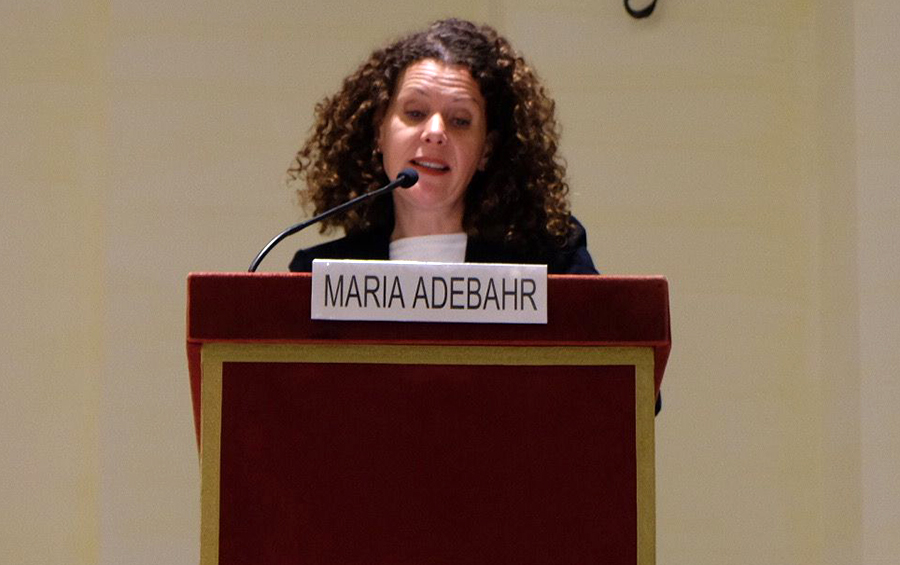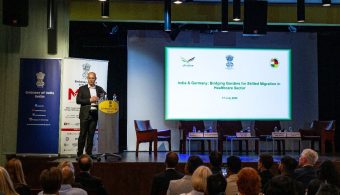File Photo; Credit: linkedin.com/in/maria-adebahr
India’s expanding influence in the global digital and AI landscape was highlighted at the Carnegie Global Technology Summit, where Germany’s top cyber official called for deeper cooperation between the two nations to shape a secure, transparent, and innovation-driven cyberspace.
Maria Adebahr, Director for Cyber, Foreign and Security Policy at Germany’s Federal Foreign Office, emphasized India’s growing role in the global tech order and called it a “vital partner” in navigating today’s digital geopolitical challenges.
Germany Calls for Stronger Indo-German Cyber Collaboration
Speaking on the sidelines of the summit on 12 April, Adebahr praised India’s digital transformation and strategic importance, calling the conference a “wonderful opportunity” to expand Germany’s engagement with India in technology and cybersecurity.
“India is an essential country to work with, especially given the current global dynamics,” Adebahr said, underscoring the need for democracies to collaborate on shared digital values. She advocated for a cyberspace that is “secure by design,” inclusive, and accessible—values she said are increasingly championed by India.
India’s scale, digital infrastructure, and innovation in AI make it a compelling partner, she added. “With your population and your digital services ecosystem, India is setting an important example for the world,” Adebahr noted.
Her comments reflect Germany’s broader push for a rules-based digital order and closer digital ties with like-minded partners like India.
Europe Looks to India’s Innovation Potential
Other European leaders echoed this sentiment. Jon Simonsson, Senior Director at the Swedish Prime Minister’s Office, highlighted India’s innovation ecosystem as one of the strongest in the Global South. He called for more structural support for startups, students, and entrepreneurs to build on this momentum.
“To truly unlock innovation, we must make it easier for the next generation to take risks and experiment,” Simonsson said. He added that while financing remains a challenge, India’s more than 100 unicorns indicate strong market confidence. “Startups here have the scale and ambition to lead—just look at how DeepSeek is driving deep tech innovation,” he said.
Indian Voices Call for Bold Policy Reform
From India’s side, Lt. Gen. (Retd) Raj Shukla, a Member of the Union Public Service Commission, stressed that India’s rise in AI and digital innovation is rooted in its deep talent pool. However, he warned that innovation could be held back by excessive regulation.
“We need innovation, but innovation doesn’t thrive in overregulated environments,” he stated. “If we want Indian talent to lead globally, we must embrace large-scale deregulation.”
Citing examples like DeepSeek, Shukla pointed out that talent-led breakthroughs are possible when the system allows for flexibility and experimentation.
Germany-India: Partners in a Digital Future
The summit reaffirmed the growing alignment between Germany and India in shaping global digital governance. As cyber threats rise and artificial intelligence becomes central to national and global strategies, Berlin sees New Delhi not just as a partner—but as a force shaping the digital norms of tomorrow.
With shared democratic values and complementary strengths, both countries are well-positioned to collaborate on secure AI development, responsible tech governance, and cyber resilience.
As Adebahr summed it up, “India is not just participating in the digital conversation—it’s helping define it.”



